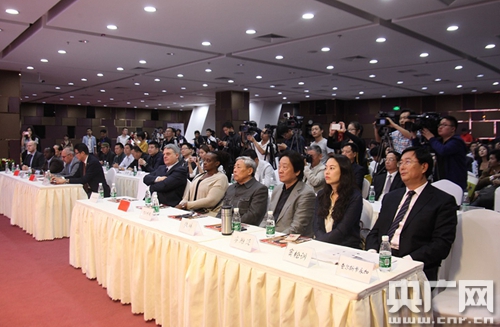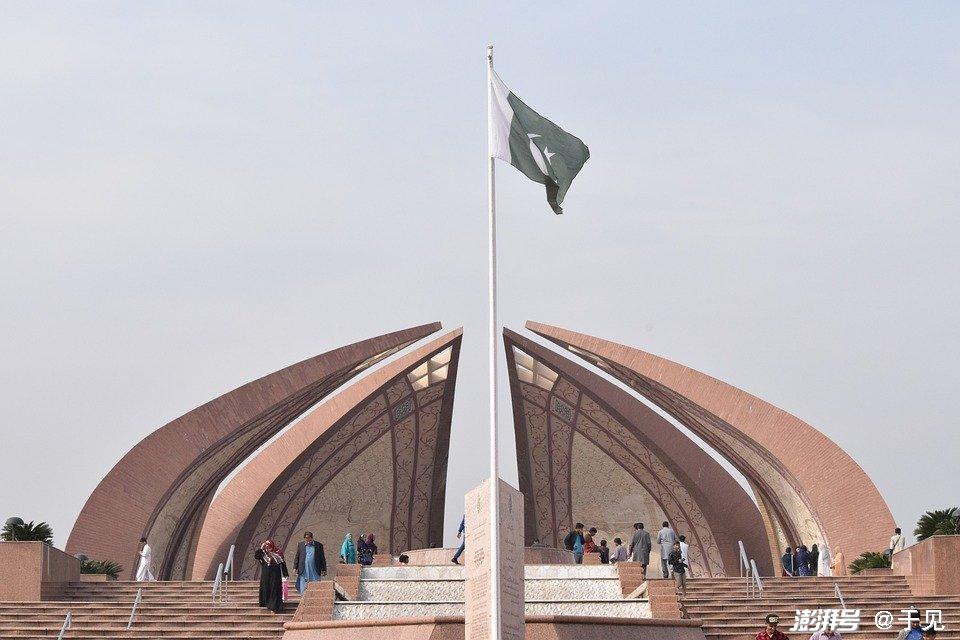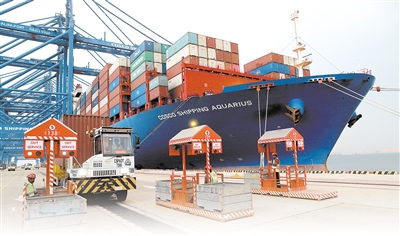Bullying Latin America, Trump Revives The "Monroe Doctrine" And Targets Three Countries
Bullying Latin America, Trump Revives The "Monroe Doctrine" And Targets Three Countries
Nowadays, the Trump administration is using the pretext of combating drugs and restricting illegal immigration to frequently use coercive means such as tariffs, sanctions, and military force to implement a series of "America First" policies in Latin America, trying to maintain its dominance in the Western Hemisphere through hegemonic means.


Since Trump returned to the White House in January this year, the United States has shown a strong "enterprising spirit" in Latin America, and the "Monroe Doctrine" has been re-intensified. Since the launch of the "Monroe Doctrine" in the early 19th century, the United States has regarded Latin America as a sphere of influence that it can take and take away. It has long interfered in the domestic and foreign affairs of Latin American countries, even resorting to force. Today, the Trump administration is using the pretext of combating drugs and restricting illegal immigration to frequently use coercive means such as tariffs, sanctions, and military force to pursue a series of "America First" policies in Latin America. It is trying to maintain its dominant position in the Western Hemisphere through hegemonic means and achieve the expansion of so-called traditional "exclusive rights and interests," thereby reshaping the governance structure with neocolonialism in Latin America.
Deter Venezuela with military threats
The current President of Venezuela, Maduro, is one of the Latin American leaders who dares to openly challenge the United States. Venezuela, Cuba, and Nicaragua are also defined by the United States as one of the "Three Anti-American Countries". Since Trump came to power again, he has continued to put pressure on Venezuela in the name of "fighting drug crimes." The United States first listed international drug trafficking groups as terrorist organizations, and then continued to claim that the Maduro government had collusion with drug trafficking groups, thereby increasing economic sanctions on Venezuela and issuing a wanted order for Maduro himself.
In August this year, Trump further increased pressure on Venezuela and continued to send more troops and deploy multiple warships to the Caribbean waters near Venezuela on the pretext of "fighting Latin American drug cartels," forming the largest U.S. naval deployment in the region. Since September 2, the US military has attacked Venezuelan ships three times, killing 17 crew members and claiming that the targets were "members of drug trafficking organizations." The United States and Venezuela have deployed troops on the Venezuelan border, and the situation is unprecedentedly tense.
Maduro said in Caracas, the capital of Venezuela, on the 23rd that the United States was fabricating false narratives with the intention of forcibly creating violent situations in the Caribbean and South America, threatening to escalate the situation and turn it into a "catastrophic war."
However, according to data released by the United Nations Office on Drugs and Crime, Venezuela is neither a source of drugs nor a major drug trafficking route to the United States. Trump's high-profile attack on Venezuela is, on the one hand, to more effectively demonstrate the results of "anti-drug" to the country through overseas military operations; on the other hand, it is to "kill the chicken and scare the monkeys" by attacking Maduro, the anti-American "thorn", to deter other countries that are resentful of the United States and Trump himself, thereby re-establishing the master-slave status of the United States and Latin America, and stabilizing Latin America as its "own backyard."
Trump is by no means an idealist with a vision for global governance. On the contrary, he has high-profile put forward "America First" and his policy propositions place great emphasis on the United States' own interests. The essence of this concept is to consolidate its position by currying favor with domestic interest groups and voters. In other words, except for its own specific "service objects", all external forces are bargaining chips that can be discarded. This also explains why Trump still makes many unacceptable demands even for those Latin American countries he calls "allies." He asked Latin American countries to accept refugees expelled by the United States, discussed with Ecuador the resettlement of military bases, and proposed to regain sovereignty over the Panama Canal. These are all sharp teeth in the bloody mouth of the "New Monroe Doctrine."

On September 23, in Caracas, the capital of Venezuela, members of the Bolivarian militia participated in a parade carrying weapons and waving Venezuelan flags. Xinhua News Agency
Use tariffs to pressure Brazil
On July 9, Trump published a letter to Brazilian President Lula on social media, stating that he would impose a 50% tariff on all goods imported from Brazil starting from August 1. In the new tax plan for countries around the world announced by Trump in July, Brazil has the highest tax rate. In August, Lula approved the launch of the "Brazilian Sovereignty Plan" to adopt a variety of measures to deal with the impact of increased tariffs imposed by the United States and encourage investment in strategic areas to ensure Brazil's economic development.
In the letter, Trump also defended his ally, former Brazilian President Jair Bolsonaro. At that time, Bolsonaro's coup case was being heard by the Brazilian Supreme Court, and Trump claimed that this judicial process was a "political persecution" against Bolsonaro. Since then, Trump has not only found a series of "reasonableness" for the tariffs, but also constantly criticized the Brazilian judicial system, and even imposed personal sanctions on the judge who was presiding over the Bo case, De Morais. After Bolsonaro was found guilty, U.S. Secretary of State Rubio issued a threat, saying that the matter would not end there and that the United States would "react" to this.
Lula delivered a speech when attending the general debate of the United Nations General Assembly on the 23rd. He expressed strong dissatisfaction with Brazil's recent sanctions and interference by the United States, saying that there was no reason to justify unilateral sanctions against Brazil's system and economy, and that the violation of Brazil's judicial independence was "unacceptable." He said that such interference often relies on far-right forces, which are obsessed with old hegemony and plan and promote actions against Brazil in the name of "patriotism." Regarding the Bolsonaro coup trial, Lula said that this trial, which has attracted wide attention from the international community, has sent a clear signal: "Brazilian democracy and sovereignty are not negotiable."
Brazil is an important supplier of coffee, orange juice, beef and other commodities to the United States. Trump has imposed high tariffs on Brazil, but the American people will ultimately have to foot the bill. However, whether it is tariffs or gross interference in Brazil's internal affairs, they are still just means to cover up the "New Monroe Doctrine" rather than its purpose. Since Trump came to power, Lula has been confronting him for a long time, criticizing Trump's unilateralism and interventionist policies in public on many occasions, and proposing views such as valuing cooperation in the Global South and resisting U.S. dollar hegemony. This is the "fatal wound" that really touches Trump's foundation. The United States has once again intervened forcefully in the internal affairs of major Latin American countries as the "world police", precisely to defeat anti-American left-wing governments and reorganize regional order.
Using immigration policies to coerce Mexico
"I didn't cross the border, the border crossed me." This is the lyrics of a song by a Mexican band. It is also a true portrayal of the United States' occupation of Latin American territories more than 200 years after the "Monroe Doctrine" was proposed. In May 1846, the United States declared war on Mexico and seized nearly half of the latter's territory and rich resources. 80 years later, Trump unilaterally announced that the Gulf of Mexico would be renamed the "Gulf of the United States" on the grounds that the Gulf of Mexico was the "indispensable wealth" of the United States. However, he ignored the fact that the name "Gulf of Mexico" had been used by the international community for more than 400 years. The even more ironic historical fact is that before the United States launched the war, even the large land surrounding the Gulf of Mexico in the United States was once part of Mexican territory.
As a southern neighbor that shares a border with the United States, Mexico has borne the brunt of Trump’s immigration policies. As early as during the campaign, Trump made combating illegal immigration a core content of his campaign. In order to evade his radical immigration policies, a large number of immigrants from Latin American countries took desperate risks and "picked up trains" to reach the US-Mexico border before Trump officially took office, causing a large number of tragic casualties. After taking office, Trump declared a state of emergency on the southern border, comprehensively halted the entry of illegal immigrants, and intended to restore the controversial "Remain in Mexico" policy.
For many years, the Democratic and Republican parties in the United States have used the illegal immigration crisis at the border as a "political ball" to kick back and forth, making illegal immigrants from Central America become victims of American politics. Analysts pointed out that the illegal immigration problem at the US-Mexico border is caused by the long-term implementation of the "Monroe Doctrine" by the United States, which blocks and restricts Central and South American countries. As the ten Latin American countries pointed out in the joint statement, the U.S. policy of large-scale deportation of immigrants not only violates basic principles of human rights, but also fails to effectively solve the structural contradictions of the immigration issue.
Since the beginning of this year, Trump has repeatedly hit Mexico with his tariff stick, announcing a 25% fentanyl tariff, a 25% automobile tariff, and a 50% steel and aluminum tariff on Mexico in order to put maximum pressure on its southern neighbors on immigration, drugs, trade and even water supply issues. The Trump administration has been exploring the possibility of military intervention in Mexico under the pretext of fighting drug cartels, and has sent drones to fly over the U.S.-Mexico border. Washington is also taking advantage of the critical juncture when the United States-Mexico-Canada Agreement (U.S.-Mexico-Canada Agreement) is about to be reviewed next year in an attempt to force the Sheinbaum administration to serve U.S. geostrategy at the expense of its own interests. Mexico's economic growth has long relied on the division of labor in the global industrial chain, but now, due to strong political pressure and geostrategic coercion from Washington, it frequently responds to external pressure by imposing tariffs on third countries. The costs will eventually be passed on to consumers, leading to an overall rise in prices and triggering inflation.





